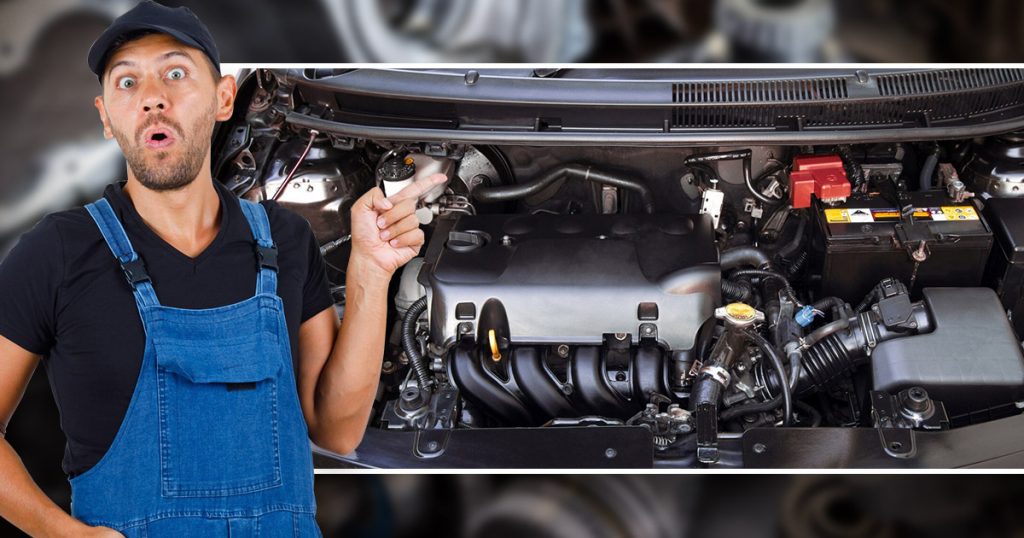The engine does more than power your car; it holds everything together. When it fails, the entire vehicle suffers. Understanding what can damage a car engine isn’t just about saving money. It’s about keeping your car dependable, safe, and ready for the miles ahead.
Engine problems don’t happen overnight. They usually start with something small. Understanding what these small issues are will help you prevent a more significant issue with your engine.
1. Skipping Regular Maintenance
Skipping oil changes, delaying filter replacements, or ignoring scheduled inspections puts unnecessary stress on your engine. As oil gets old and contaminated, it turns into sludge that struggles to protect the engine’s fast-moving parts. This leads to more friction and faster wear. Even low fluid levels can cause overheating and permanent damage.
Neglecting routine maintenance is one of the fastest ways to wear down your engine. Follow your service schedule and give fluids the attention they deserve. Clean, well-maintained systems help your engine stay strong and reliable.
2. Overheating From Cooling System Problems
Engines produce a lot of heat. The cooling system maintains temperature control. When coolant levels drop or the radiator fails, the engine overheats. Warped parts, cracked gaskets, or a seized motor can happen in minutes.
What can damage a car engine faster than heat? Not much. Always check your coolant, hoses, and radiator for leaks or blockages. Replace a bad thermostat or a faulty water pump as soon as possible.
3. Running With Low or Dirty Oil
Oil lubricates and cools internal engine parts. If the oil is dirty or too low, friction builds up. That leads to overheating, faster wear, and eventually a broken engine.
Use the right oil type for your car. Change it regularly and replace the oil filter too. A simple oil change is cheaper than engine repair.
4. Faulty Ignition or Spark Plug Problems
When spark plugs misfire, combustion becomes uneven. Over time, this affects the pistons, exhaust system, and even the catalytic converter. Ignition coil failures and bad wiring can cause similar issues.
Watch for signs like rough idling or poor acceleration. Replace spark plugs and coils on schedule. Engine damage from misfires happens when problems go unchecked for too long.
5. Bad Fuel or Fuel System Trouble
Fuel contamination can lead to clogged injectors or filters. If your engine doesn’t get the right air-fuel mixture, it may stall or misfire. A weak fuel pump also limits pressure, hurting performance.
Engine damage from fuel problems happens slowly. Use good-quality gas. Clean your fuel system and replace the filter when needed.
6. Oil Pump Failure
A failed oil pump means oil won’t circulate through the engine. Without proper lubrication, moving parts grind together until something breaks.
Low oil levels and sludge buildup are common causes. Watch for warning lights or low-pressure signs. Address these early to avoid a complete car engine failure.
7. Coolant or Water Entering the Engine
A blown head gasket or cracked block can let coolant or water into the cylinders. This causes hydrolock, where pistons can’t compress the liquid. When that happens, the engine can seize almost instantly.
If you notice white smoke from the exhaust or bubbling in the radiator, get your car checked. Avoid driving through floodwater, especially if the engine intake is low.
8. Engine Knocking and Detonation
Knocking happens when fuel ignites at the wrong time. This puts extra pressure on pistons and valves. Left untreated, it leads to serious engine damage.
Use the correct fuel grade. Keep the combustion chamber clean. Detonation often starts small but can ruin your engine over time.
9. Driving With a Broken Timing Belt or Chain
Timing belts and chains keep your engine’s parts moving in sync. If one breaks, valves and pistons crash into each other. This usually means complete engine failure.
Don’t wait until you hear ticking sounds. Follow your car’s replacement interval for timing components. Once this belt breaks, the damage is done.
10. Ignoring Early Warning Signs
Your dashboard lights and engine noises exist for a reason. A flashing check engine light or a sudden loss of power means something’s wrong. Delaying repairs turns minor problems into major engine damage before you know it.
Trust your instincts; if your car feels off, don’t wait to have it checked. Avoiding damage is easier than fixing it.
Small Habits, Big Impact
Avoiding engine damage doesn’t require deep mechanical knowledge. All it takes is a bit of routine, awareness, and the willingness to look closer. Notice the small changes, your engine usually speaks before it breaks. Ask questions when warning lights pop up. And don’t wait until you’re stranded on the side of the road to care about what’s happening under the hood.
The best mechanics aren’t always the ones in the garage; they’re often drivers who notice problems early and act before things get worse.
Your car engine won’t last forever, but smart habits will always keep it running longer. Treat it well, and it’ll return the favor every time you start the ignition.
